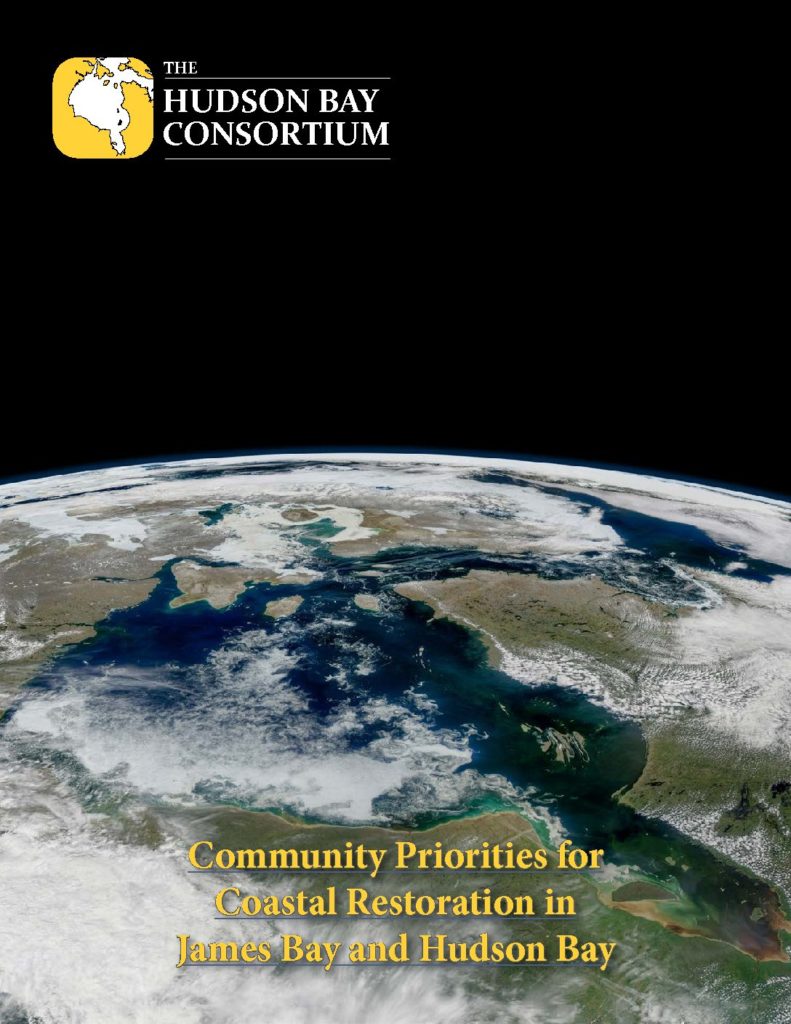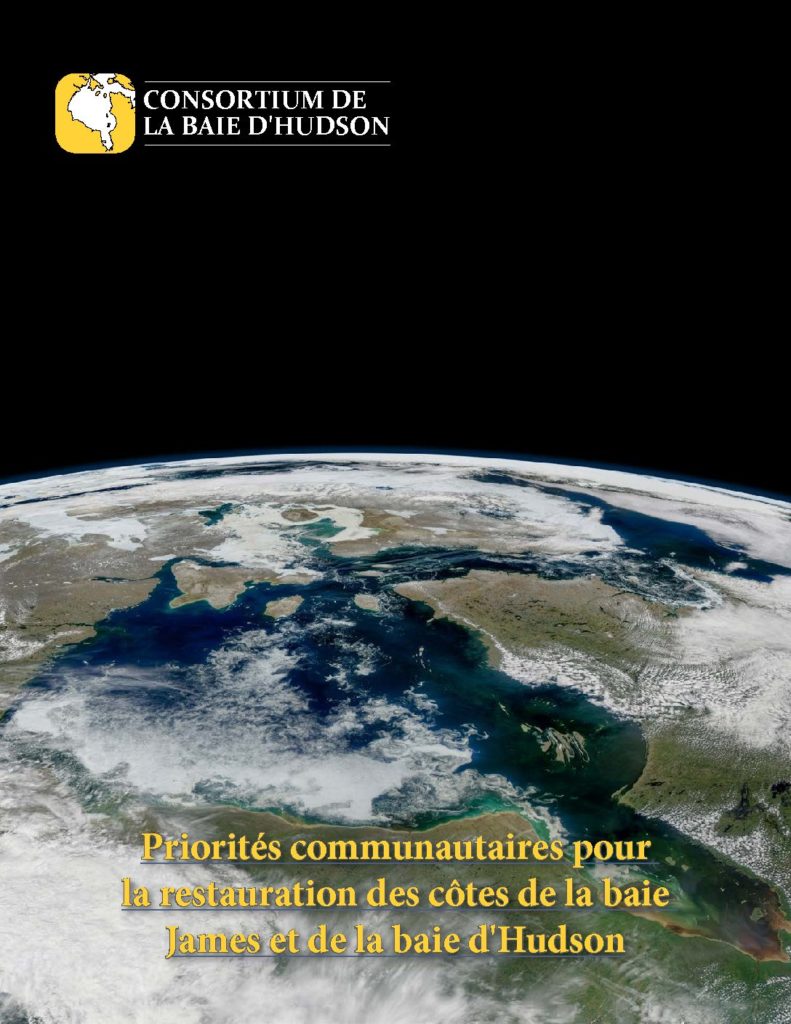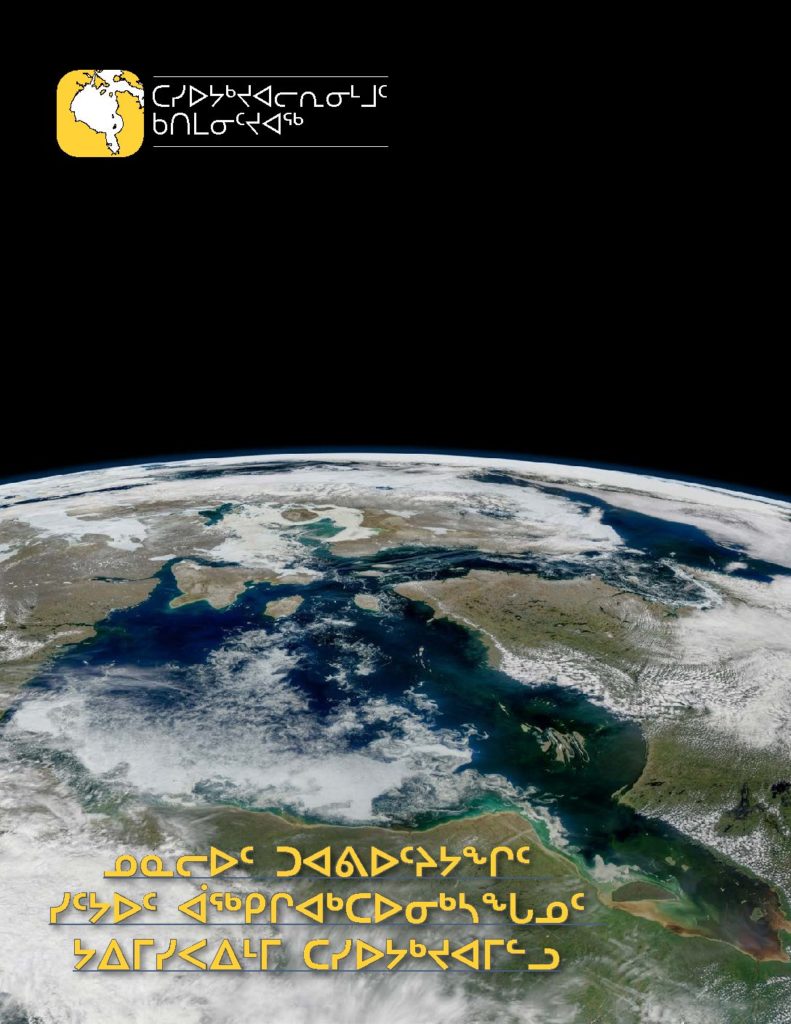Priorities
The inaugural Hudson Bay Summit was held in Montreal from February 27 to March 1, 2018. After many years of planning and effort by the communities and indigenous organizations of James Bay and Hudson Bay, 27 communities along with representatives from indigenous organizations, governments, academics and non-profits came together to officially launch the Hudson Bay Consortium and hold workshops on coordinating research in the region, planning for protected areas and coastal restoration, as well as to forge ahead on next steps for the consortium. Through the summit workshops, important outcomes and next steps were identified and working groups were formed to begin work on community priorities. Responsible for the ongoing collaboration in their respective focus, the working groups meet four times a year via a conference call to discuss and strategically plan upcoming workshops at both the Eastern Hudson Bay and James Bay Roundtable and the summits. Representatives in the working group identify community needs and serve as a voice guiding the work and purpose of each group. To join a working group or discuss the need for additional working groups, please contact: info@hudsonbayconsortium.com.
Community-Driven Research & Monitoring
Community-Driven Research & Monitoring
Human impact and climate change repercussions on the Arctic environment are immense and felt right across the entire Hudson Bay and James Bay region, often having cumulative and multi-community effects. This working group identifies and understands community priorities and key indicators for monitoring and community-driven research. There is an emphasis on collaboration between the community and organizational representatives in this group with an emphasis on coordinating research and monitoring efforts across the greater Hudson Bay/James Bay region.
Led by Jennie Knopp, Oceans North.
Stewardship and Protected Areas
Stewardship and Protected Areas
The Stewardship and Protected Areas working group is a coordinated effort between communities to listen and share visions for the future stewardship of the region beyond the complex jurisdictional lines of this geographically immense region. It is recognized that indigenous governance institutions and mechanisms that exist are the appropriate authorities to undertake planning and management of any protections in the Hudson Bay/James Bay complex.
Led by Stephanie Meakin, Meakin Consultants.
Communications
Communications
This working group serves a coordination role ensuring that participants have access to up-to-date work happening in the region to help facilitate synergies between programs and avoid duplication of efforts. Additionally, this group will identify the desires of the participants for communicating meeting audio and video footage, and identify ways to exchange knowledge between the communities in the years between the summits.
Led by Kaitlin Breton-Honeyman, Polynya Consulting.
Coastal Restoration
Coastal Restoration
In the wake of substantial funding from Fisheries and Oceans Canada for Coastal Restoration, this working group set out to identify key changes in coastal environments, sources of impacts on fish, molluscs and marine animals. The goal was to develop and implement coastal restoration plans to mitigate impacts as well as follow-up monitoring and maintenance. During the Summit in Montreal, the Coastal Restoration Workshop included a participatory mapping activity of which additional details can be found in the Summit Final Report.
The Coastal Restoration working group has concluded and the final reports of their work can be found here:
This Working Group was led by Anu Rao.


